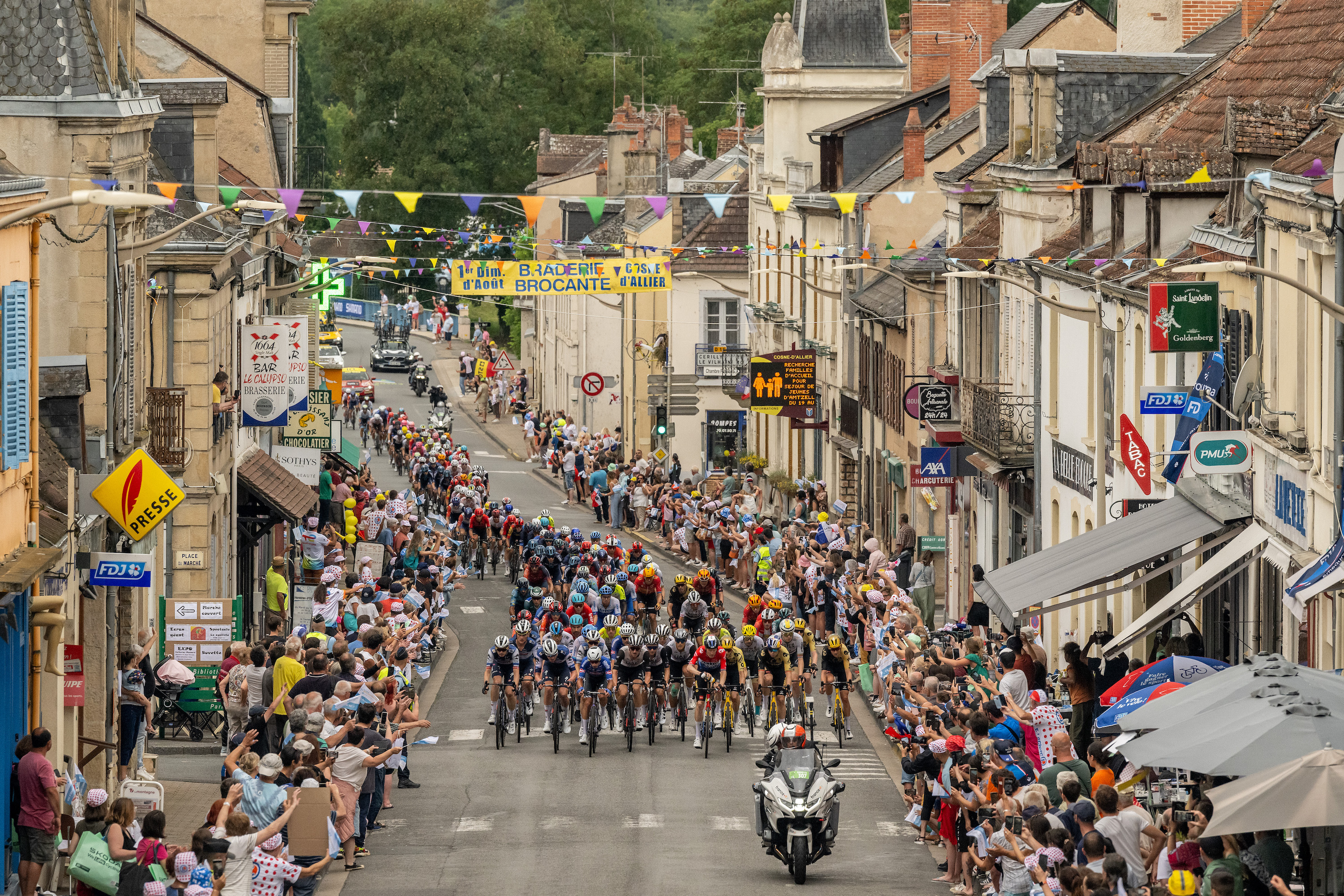
Money makes the world go round, we are led to believe. It is crucial to almost all of us, something we all have to worry about - unless you are stupidly rich.
Money, most often in terms of transfers and wages, is the stuff of idle chat and rumours in the team paddock at the Tour de France, but it is rare to know with certainty how much a specific rider actually earns. Much like a polite middle-class dinner party, it is simply not discussed openly.
That all changed at the Giro d'Italia this year, when Jay Vine of UAE Team Emirates made an interesting admission about what was pushing him to perform at the second-biggest Grand Tour of the year.
“I keep getting told that I can ride for a top 10 but that’s not interesting for me personally," the Australian said. "In an ideal world, my goal would be to lose 45 minutes and then be able to target some stages.
“There is no interest for me because it has no monetary value at all.
“I’ve signed for four years and part of the negotiations was ‘top 10s are meaningless’. So I don’t care. It might be great for the team, for social media, but wins or podiums [are what matters]… Apart from that, I’m happy to help João [Almeida] but I personally don’t care.”
This response led Cycling Weekly to wonder how big a motivating a factor money is for others, and if not, what is it that pushes them to perform.
Asked if money was important, Bahrain Victorious' Jack Haig paused, and laughed: "I think that's a rhetorical question, because the way that human society is built with consumerism, money is very important. I'm sure you'd also like $10,000 more to do your job, the same way as everyone does."
However, when asked what else motivated him, the Australian replied: "Self improvement, I guess. Doing well in racing, and being a part of the race, to be honest. Being in important parts of the race is a nice feeling."
Cees Bol (Astana-Qazaqstan) was more reticent on how much money motivated him, suggesting that he would even ride the Tour for free, were that a possibility.
"Money's not so important, but it's nice," the Dutchman said. "I wouldn't do it for free - [except] the Tour maybe. It's nice to have a good salary, and you can only be a cyclist for 10 or 12 years, so you have to make the most of it. It should give you some time after your career to figure out what you want, and not be stressed about it."
Bol insisted that he simply enjoys riding his bike: "Even if I'm not competitive and I'm feeling sh*t I'm still enjoying going for a bike ride. I always go out and just ride. But of course, especially for the sprints, the speed, the chaos, the adrenaline it gives you, that's something super sweet as well."
Søren Wærenskjold (Uno-X), who is making his debut at this year's race, pointed out that money was not what he was thinking about when attempting to become a cyclist.
"Money is quite important, but when I was younger, I wasn't motivated by it," he said. "Now I'm older, and maybe you want to buy a house or something else, then I probably wouldn't do it if I didn't get paid something at least. Money gives you a lot of opportunities to do things, so of course it motivates, but when I was 12 I didn't think about it. I don't think I would be here if it was about money."
For all the things that money can provide you, cycling takes a lot of pain that means you almost have to enjoy it a bit in order to feel like it's worth it. If it is all about money, why not try and become an investment banker? If Vine is being honest about his motivations, perhaps he'd have been better going that route.
A rider at the other end of his career to Wærenskjold and Vine, John Degenkolb (dsm-firmenich), told Cycling Weekly that he had not been a pro cyclist for the last decade and a bit because of the remuneration.
"Money is an issue, but in the end, money cannot pay you for all the sacrifices you do to get here," the German said. "It's also a lot about the passion, and the joy, because you're so often away and so far away from your family. It's not that we do it for the money."
If you are a rider who can win races, then a triumph might be one factor in pushing you to keep riding. However, what's the motivation if you're someone who does not win as much, or someone who is employed almost purely as a domestique? Jasper De Buyst (Lotto-Dstny) provided us with his answer.
"Obviously, I won some races when I was younger, and I could still win some races now and then," he explained. "But if I consider my whole career, then if I'm lucky, I will have a win once or twice a year. Then you have this feeling of that win.
"But if you're me, and you point your whole career to having an important role in helping others, then there's the feeling of knowing in the evening that you were the difference between winning and losing. This, when you have a good leader, you can have it nine times a year.
"What drives me is having a difference between winning and losing."
Money is, as Jack Haig so succinctly pointed out, rather crucial in our capitalist system. However, for many in the current peloton, it isn't the sole reason to keep riding, to keep trying. That's probably a good thing.







